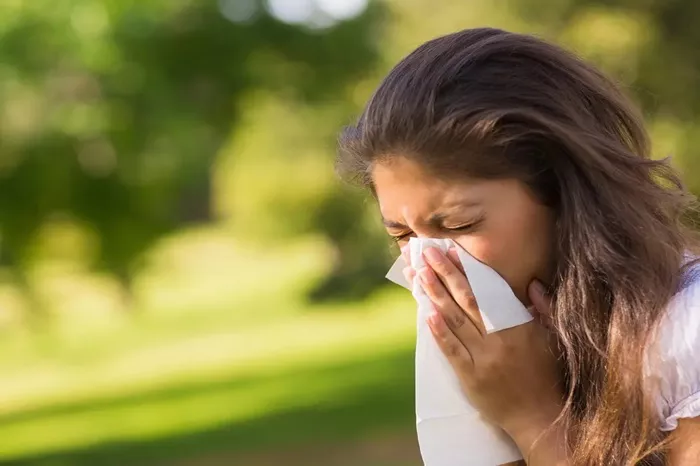Grass allergies, also known as hay fever or allergic rhinitis, are a common seasonal allergy triggered by pollen from grasses. For many individuals, grass allergies can be a source of discomfort and frustration, leading to symptoms such as sneezing, runny nose, nasal congestion, itchy eyes, and throat irritation. While it may not be possible to completely avoid exposure to grass pollen, there are several strategies and treatments available to help manage grass allergies effectively. In this comprehensive guide, we explore practical steps for finding relief from grass allergy symptoms and minimizing their impact on daily life.
Understanding Grass Allergies
Grass allergies are caused by an immune system response to pollen grains released by grass plants. When individuals with grass allergies inhale or come into contact with grass pollen, their immune system mistakenly identifies the pollen as a threat and produces antibodies called immunoglobulin E (IgE). This triggers the release of histamine and other chemicals, leading to the characteristic symptoms of allergic rhinitis.
Grasses that commonly trigger allergies include:
1. Timothy grass
2. Bermuda grass
3. Ryegrass
4. Kentucky bluegrass
5. Orchard grass
Grass pollen is most abundant during the spring and summer months, particularly on dry, windy days when pollen can be carried long distances through the air.
Symptoms of Grass Allergies
Grass allergies can cause a range of symptoms, which may vary in severity from mild to debilitating. Common symptoms of grass allergies include:
Sneezing: Frequent or repetitive sneezing is a common symptom of grass allergies, often triggered by exposure to grass pollen.
Runny or Stuffy Nose: Nasal congestion, runny nose, and postnasal drip are typical symptoms of allergic rhinitis caused by grass pollen.
Itchy Eyes: Grass pollen can irritate the eyes, leading to symptoms such as itching, redness, watering, and sensitivity to light.
Throat Irritation: Grass pollen exposure may cause throat irritation, itching, or a scratchy sensation in the throat.
Coughing: Some individuals with grass allergies may experience coughing, particularly if postnasal drip triggers throat irritation or inflammation.
Fatigue: Allergic rhinitis can cause fatigue or feelings of exhaustion due to disrupted sleep patterns or persistent symptoms.
Strategies for Managing Grass Allergies
While grass allergies can be challenging to manage, several strategies can help alleviate symptoms and reduce exposure to grass pollen. Here are some practical steps for managing grass allergies effectively:
1. Monitor Pollen Counts
Stay informed about local pollen counts, particularly during peak grass pollen seasons. Many weather websites, allergy apps, and local health departments provide daily pollen forecasts to help individuals plan their outdoor activities accordingly. On days when grass pollen levels are high, consider limiting outdoor exposure or taking preventive measures to reduce allergen exposure.
2. Limit Outdoor Exposure
Minimize outdoor activities, especially during peak pollen times, such as late morning and early afternoon. If possible, stay indoors with windows closed and use air conditioning to filter indoor air. When spending time outdoors, wear sunglasses and a wide-brimmed hat to protect your eyes and face from pollen exposure.
3. Create a Pollen-Free Zone
Designate a pollen-free zone inside your home by keeping windows closed, using high-efficiency particulate air (HEPA) filters in air purifiers, and regularly vacuuming carpets and upholstered furniture to remove pollen particles. Consider using a dehumidifier to maintain indoor humidity levels between 30% and 50%, as higher humidity can promote mold growth and dust mites.
4. Practice Nasal Irrigation
Nasal irrigation, also known as nasal lavage or nasal saline irrigation, involves flushing the nasal passages with a saline solution to remove allergens, mucus, and irritants. Use a neti pot, squeeze bottle, or nasal irrigation device to perform nasal irrigation regularly, especially after outdoor activities or exposure to grass pollen.
5. Use Allergy-Proof Bedding
Invest in allergy-proof bedding, including mattress covers, pillow covers, and hypoallergenic bedding materials, to create a barrier against dust mites and pollen particles. Wash bedding regularly in hot water (above 130°F) to kill dust mites and remove allergens effectively.
6. Wear Protective Clothing
When working outdoors or engaging in activities that may expose you to grass pollen, wear protective clothing such as long-sleeved shirts, pants, gloves, and a hat to minimize skin contact with pollen. After outdoor activities, remove and wash clothing promptly to prevent pollen transfer to indoor surfaces.
7. Consider Allergy Medications
Over-the-counter and prescription allergy medications can provide relief from grass allergy symptoms. Antihistamines, decongestants, nasal corticosteroids, and allergy eye drops are commonly used to alleviate sneezing, itching, nasal congestion, and eye irritation associated with grass allergies. Talk to your healthcare provider or allergist to determine the most appropriate medication regimen for your symptoms.
8. Explore Immunotherapy Options
Immunotherapy, also known as allergy shots or sublingual immunotherapy (SLIT), may be recommended for individuals with severe or persistent grass allergies that do not respond adequately to other treatments. Immunotherapy involves gradually exposing the immune system to small amounts of allergen extracts to desensitize the body’s response to allergens over time. This can lead to long-term symptom relief and reduced reliance on allergy medications.
9. Consult an Allergist
If you experience persistent or severe grass allergy symptoms despite taking preventive measures and over-the-counter medications, consider consulting an allergist for further evaluation and management. An allergist can perform allergy testing to identify specific allergens triggering your symptoms and develop a personalized treatment plan tailored to your needs.
10. Practice Good Allergy Management Habits
In addition to the strategies mentioned above, practicing good allergy management habits can help reduce the severity and frequency of grass allergy symptoms. This includes:
Keeping windows closed during high pollen seasons
Using high-efficiency air filters in HVAC systems
Removing shoes before entering the home to prevent tracking pollen indoors
Showering and changing clothes after outdoor activities to remove pollen from the skin and hair
Conclusion
Grass allergies can be a source of discomfort and inconvenience for many individuals, but with proper management strategies and treatment, it is possible to find relief from symptoms and minimize their impact on daily life. By staying informed about pollen counts, reducing outdoor exposure, implementing indoor allergen avoidance measures, and considering allergy medications or immunotherapy, individuals with grass allergies can take proactive steps to manage their condition effectively. Remember to consult with a healthcare provider or allergist for personalized advice and treatment recommendations tailored to your specific allergy triggers and symptoms. With the right approach, you can navigate grass allergy season with greater comfort and confidence.
[inline_related_posts title=”You Might Be Interested In” title_align=”left” style=”list” number=”6″ align=”none” ids=”8970,8966,8962″ by=”categories” orderby=”rand” order=”DESC” hide_thumb=”no” thumb_right=”no” views=”no” date=”yes” grid_columns=”2″ post_type=”” tax=””]


































